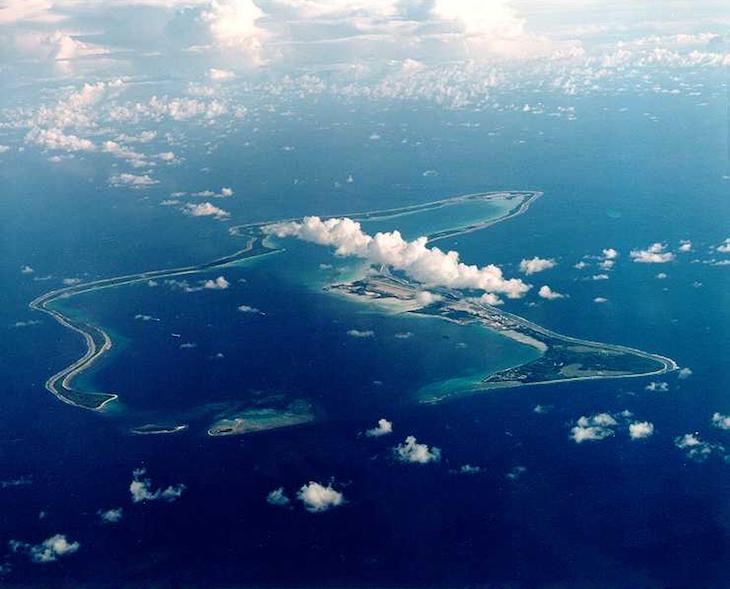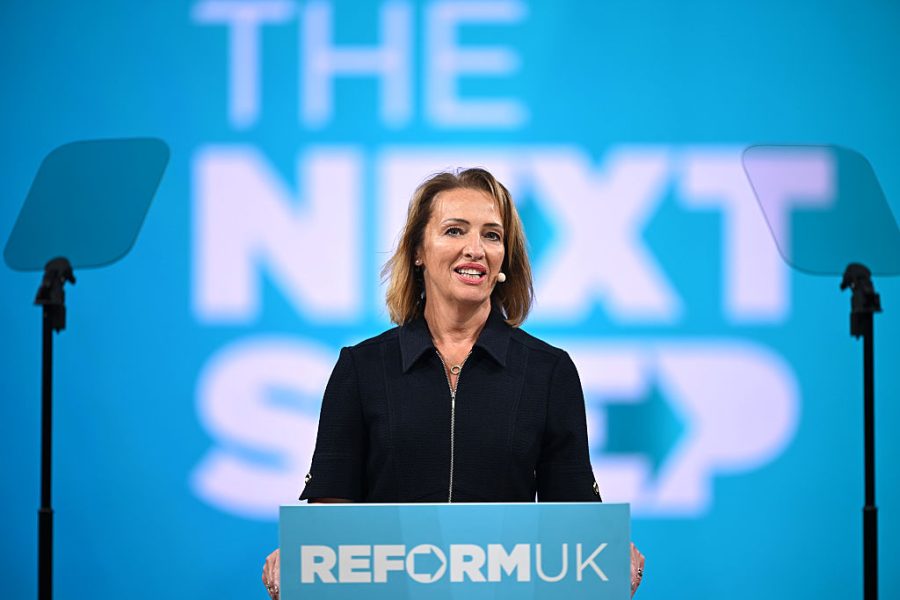The art of policymaking is to chart a course through evolving circumstances. In the face of resistance, there are three options: resist and persevere in kind, adjust, or fold and abandon ship. The best policymakers make the correct decision at the right time. The British government is in such a moment with its attempt to cede the Chagos Islands to Mauritius. For months, it has elected the first option – even as the new Mauritian government rejected the terms of the original deal, and Donald Trump’s election victory promises to usher in an administration with dim views of the agreement. As the Chagossians condemned their exclusion from the negotiations, and Maldivian opposition exposed broad regional unease, one by one the arguments in favour collapsed.
The Chagos Islands remain our sovereign territory
Finally, the UK has rejected resistance and switched to adjustment. Yesterday, the Prime Minister’s spokesman confirmed that the government would now await the incoming American President’s blessing before finalising the deal. In doing so, it has engineered an eleventh-hour off-ramp to avert a costly strategic error. We should applaud this change of heart.
The reason that this should be welcomed is because transferring sovereignty over the Islands to another state would be to jeopardise the long-term security of the Diego Garcia military base – a joint UK-U.S. naval, air and intelligence facility which is critical to our strategic position in the Indian Ocean. With Chinese presence and activity ramping up in the region, it has never been more essential to protect the asset at all costs.
For all the government’s insistence that the base’s long-term future is “more secure under the agreement than without it”, this is simply not true. As our recent Policy Exchange report shows, key existing security measures around Diego Garcia could be at risk.
The UK currently designates Chagossian waters as a Marine Protected Area (MPA), with stringent rules precluding the entry of foreign vessels. This excludes fishing trawlers, but also pseudo-‘commercial’ vessels carrying surveillance and monitoring equipment – the very kind which the People’s Republic of China is known to utilise extensively to conduct espionage. As Mauritius’ own MPA permits the issuance of licences to foreign ships, will the Islands’ new sovereign preserve similar protective mechanisms? Neither the UK nor Mauritius has said.
The UK has also carved-out an exemption for the base from the Pelindaba Treaty, which imposes a nuclear-free zone on the African continent. As Mauritius is a signatory to the Treaty, it is also unknown whether the nuclear function of the base will survive.
It bears noting that China is fast nurturing its relations with Mauritius – which became the first African state to strike a Free Trade Agreement with Beijing in 2019, and has signed a number of telecommunication and energy contracts with Huawei in recent years. On what grounds can we rest assured that Chinese influence over Mauritius will not, in the longue durée, result in a watering down – or altogether violation – of terms accepted today?
Borne by naivety and midwifed by stubbornness, the deal was never wise. The government’s decision to open the door to American scrutiny is thus a welcome development.
However, there is an elephant in the room: the absence of the UK’s own Parliamentary scrutiny. By leaving final judgment to the White House, the government is in effect passing the buck on a matter of British national security. After all, the Chagos Islands remain our sovereign territory.
The government must therefore adjust course further – this time by disclosing all details of the deal, and its own strategic analysis, to Parliament immediately. This could come in the form of wholesale Parliamentary scrutiny or, at the very least, an immediate Foreign Affairs Select Committee assessment. As representatives of the British public, elected politicians deserve to be consulted on defining questions of national security.
There are a few conditions of the arrangement which demand particular probing. What legal protection has the government ensured to prohibit a future Mauritian government violating, or terminating, the lease agreement for Diego Garcia? What is the government’s strategic risk assessment of the long-term threat posed by China’s regional activity? Will the new MPA retain the same restrictions on foreign vessels? What is the legal rationale behind the government’s conviction – that conceding to the International Court of Justice’s non-binding advisory opinion that British ownership of the Islands is unlawful – does not set a legal precedent for any future ruling on other British Overseas Territories?
These are the questions that the incoming Trump administration will be asking as it accepts the UK’s invitation to scrutinise the proposed deal. But it is imperative that our own Parliament be given the same opportunity. If, as the government claims, the deal is a good one, it has nothing to hide.







Comments